Premier League
The real Ted Lasso: Inside an ex-NFL player's madcap stint in English soccer
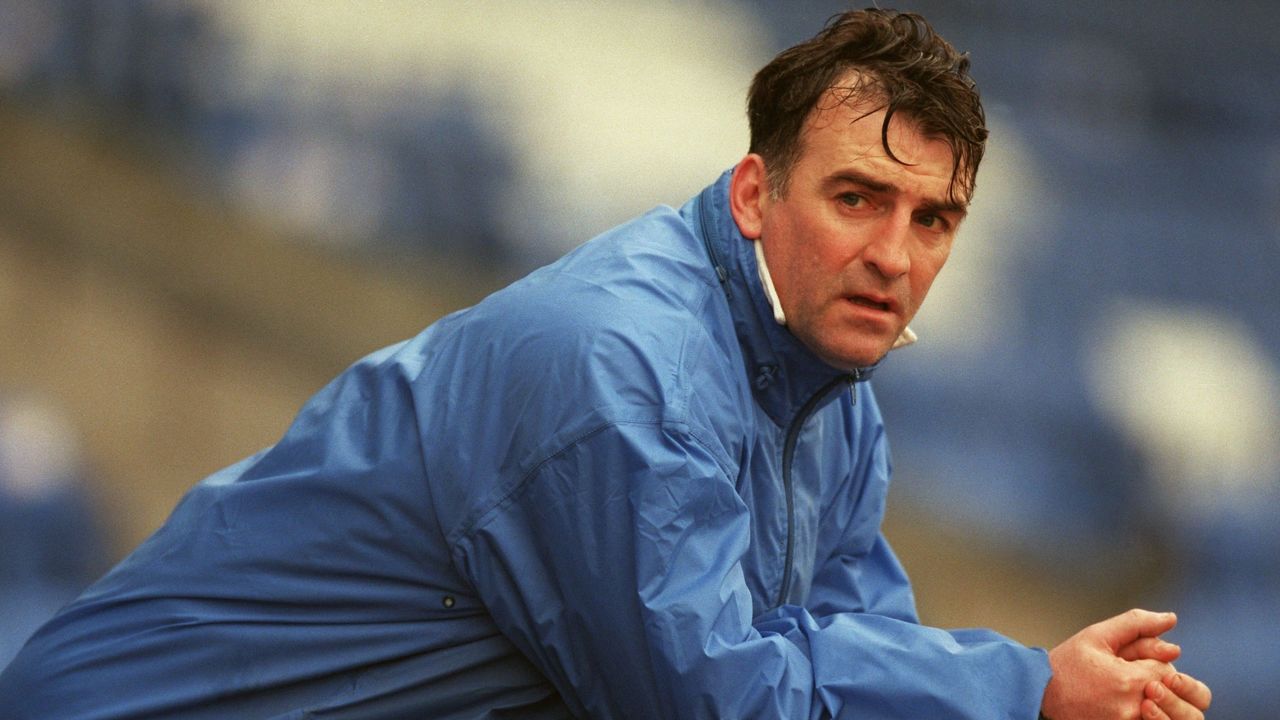
Before Ted Lasso, there was Terry Smith. And English soccer’s first American owner appeared to have a Lasso-esque plan ready to roll on day one.
But, as Kevin Ratcliffe, then-manager of Chester City, explained to theScore, there was one problem: Smith didn’t have a clue about soccer.
Smith, a former backup for the NFL’s New England Patriots, plunged into the world of soccer when he bought debt-riddled Chester City in 1999. He spent more time at the fourth-tier team’s training sessions than in his office, filling his notepad while he inquired about the purpose of certain drills.
Ratcliffe was mulling over a season-opening defeat to Barnet in the guts of the club’s Deva Stadium when Smith’s father Gerald – reportedly a key source of financing for the takeover – asked him for the whereabouts of someone named Keith.
“I said, ‘Keith who?’ He says, ‘Keith, the manager,'” Ratcliffe told theScore.
Ratcliffe thought quickly and mischievously directed Gerald to the dressing room for “Keith.” The turn of events bought the actual manager a few more hours until he met the Smiths the following morning.
A former defender who captained Everton during their greatest era, Ratcliffe felt “brain-dead” after that fateful meeting with Terry Smith and Gerald Smith. Ratcliffe irritated the younger Smith when he tried to excuse himself after four hours to spend time with his family on his day off.
“He got this scruffiest bit of paper that I’ve ever seen,” Ratcliffe described, “flattened it out, and proceeded to write on it. He gave it to me and it was a written warning.”
Ratcliffe was already plotting his exit from the club, a process that included him safeguarding players’ immediate futures with new contracts. The face-to-face encounter simply hastened his departure. He resigned shortly after the start of the 1999-2000 season, ending his first managerial role after over four years.
“If he was on fire on the other side of the road, I’d go and throw a log on him,” Ratcliffe said of Terry Smith.
Over his head
Chester City were on life support under their previous owner. Ratcliffe covered a £5,000 bill in 1998 to turn the stadium’s water back on and allow a friendly match to go ahead. He paid himself back with the gate receipts.
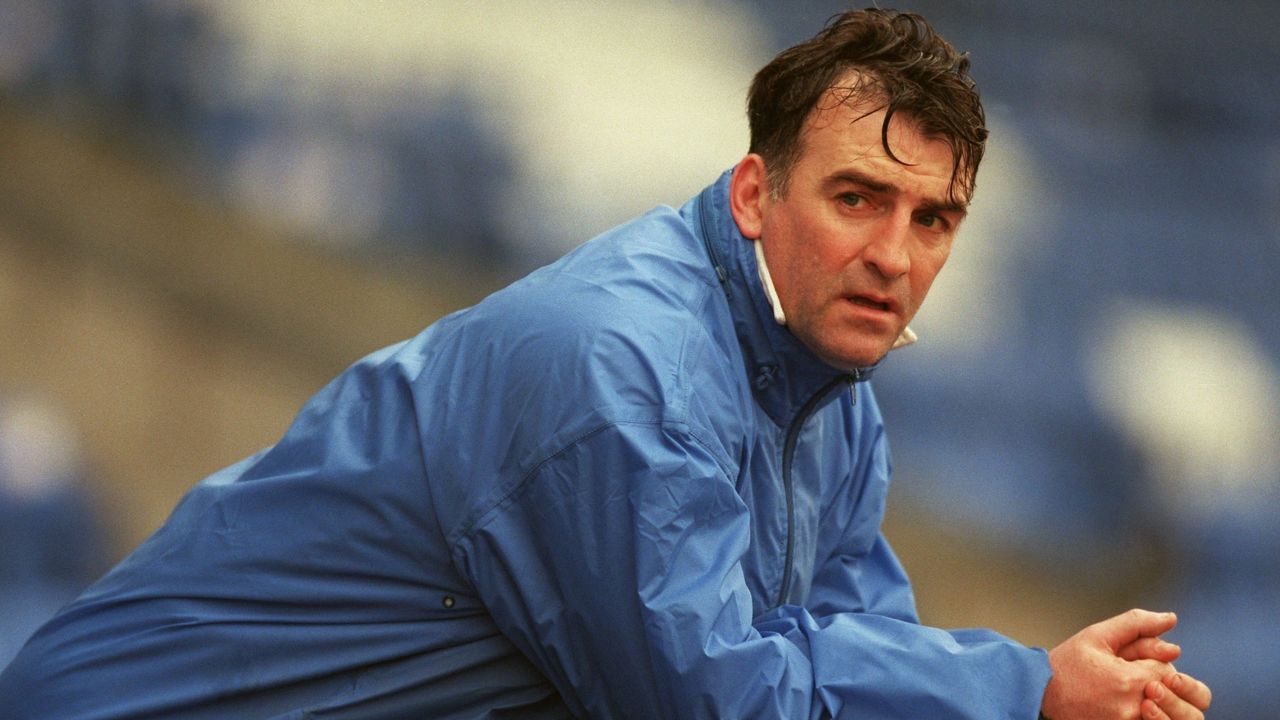
Darren Moss made his debut at 16 due to his obvious talent, but also, he suspects, because he was a cheap first-team option when his youth contract weighed in at just £42.50 a week.
The state of the club’s finances and the rather antiquated state of banking around the turn of millennia combined for a Mario Kart-style dash every payday.
“We’d get a cheque from the office after training and we’d all race down to the club’s bank branch in the middle of the town center so that we could make sure that you weren’t the last person,” ex-Chester midfielder Nick Richardson recalled. “Whoever was last one there might not have got paid.”
For Smith to deliver his ambitious promise of First Division football, he needed to ensure the club was on surer financial footing. Dan Brooks – a linebacker for one of the successful teams Smith coached in the UK’s American football circuit – was at a loose end in his native Canada when Smith invited him “to come and participate” in the Chester project.
“I marketed American football in a country where it really was not a priority. We had some success with that,” Brooks explained of his experience before he was named Chester’s commercial director. He also noted his position of marketing director for Frontierland, a theme park in the British seaside town of Morecambe that ceased operations in 2000.
Despite the off-field uncertainty, Smith was a regular fixture in training from the beginning. Ratcliffe claims Smith was going over his head to dictate when training started and finished even before his takeover of the club was ratified, and the owner was regularly inviting out-of-contract footballers to try out at Chester’s base.
“It was every week you’d get somebody come through the door,” Moss said. “You’d be like, ‘Fucking hell, who’s this now?’ And they’d be dreadful.”
Ratcliffe remembered an Icelandic trialist who Smith claimed could whip in dangerous crosses, was strong in the air, and was a good finisher.
“I’m thinking, ‘What’s he doing at Chester if he’s got all these qualities?'” Ratcliffe quipped.
Somewhat predictability, the trialist failed at Ratcliffe’s basic crossing, heading, and shooting drills while the rest of the squad went through its workouts nearby. Shaun Reid, the younger brother of then-Sunderland boss Peter Reid, watched in disbelief, and delivered a line which riffed on the trialist’s home nation sharing a name with a British discount frozen-food chain.
“Shaun shouted over to me, ‘So, gaffer. We got the lad in from Iceland, when’s the lad from Kwik Save coming in?'” Ratcliffe laughed. “(The joke) was right over Terry’s head.”
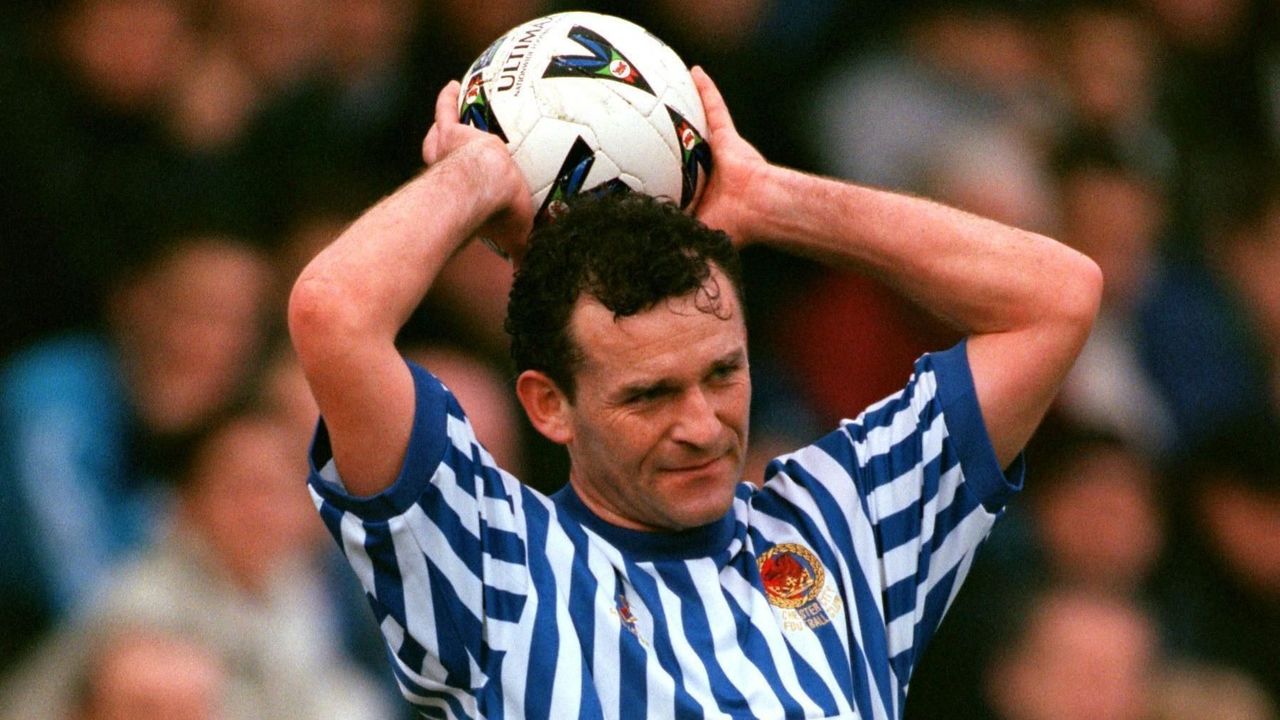
The Icelander’s unfortunate audition is one of Ratcliffe’s many tales of Smith’s transfer dealings. Ratcliffe says Smith signed an amateur player but paid him so little that he struggled to cover the one-hour round trip to training, while one American trialist had to stay the night at a local policeman’s house when Smith reneged on a contract offer and abruptly ended the player’s hotel reservation.
Smith also apparently decided to sanction the £10,000 sale of Andy Crosby to Brighton & Hove Albion. Ratcliffe said he’d recently rejected an offer worth twice that amount from Brighton.
“His face just turned blue,” Ratcliffe recalled of showing Smith the £20,000 bid he received via fax. “It just shows you, if you’re not conversing with your manager, you’re on a slippery slope.”
Ratcliffe thinks Brighton went behind his back because “they knew the state of the club.”
‘He’s going berserk’
Smith sensationally succeeded Ratcliffe at the team’s helm, trusting what he’d learned from around two months at the club’s training ground.
“All coaching is 90% the same, regardless of the sport,” Smith is widely quoted as saying after he assumed his self-assigned role.
“He loved to be in control of everything; hands-on with every single thing. I’d describe him as a bit of a control freak,” ex-player Moss shared.
Smith didn’t seem to use much of what he observed at Ratcliffe’s sessions.
“When Terry came in, the actual focus then shifted from 80% football and 20% set-pieces to 80% set-pieces and 20% football,” former midfielder Richardson estimated. Players would wear numerous layers to contend with the increased hours of standing around in the wet English weather.
It wasn’t only the strong set-play focus that harkened back to Smith’s American football roots. Moss said they played 11-v-11 gridiron in one session, where they threw the ball into the net instead of completing touchdowns. In an effort to boost leadership, Smith elected three captains: one each for defense, midfield, and attack. He also introduced prematch renditions of the Lord’s Prayer – a ritual that would be unique in any British sport.
Brooks, Smith’s marketing man, credits his friend as the most prepared coach he encountered during his American football career, and Chester’s unlikely manager was similarly meticulous in soccer. Moss remembered Smith would leave dossiers under each player’s hanger ahead of a match, with details such as set-piece positioning and information on opponents included. Moss said he and his teammates understood Smith worked long hours to prepare the personalized playbooks.
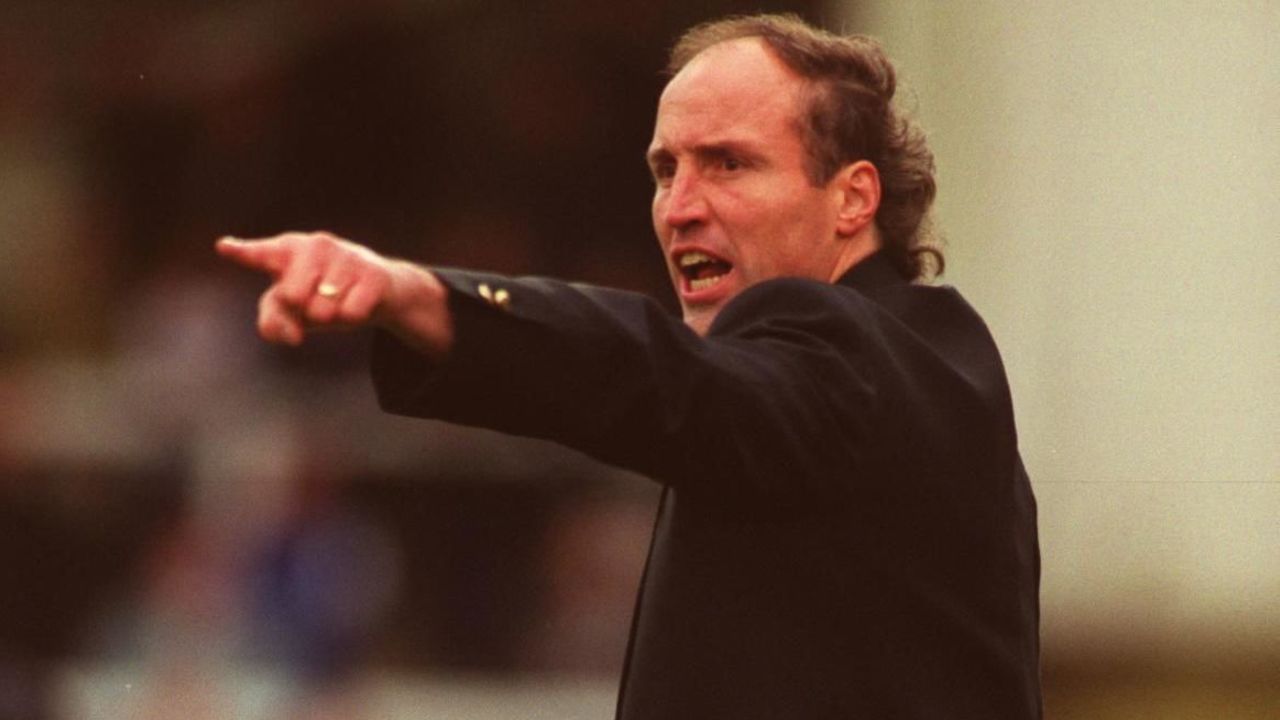
Smith’s competitiveness was undeniable and spilled over into him testing his strengths against those of his players. Richardson said there were a few gym sessions when Smith challenged the squad to lift a “fantastical weight,” but it would invariably turn into the players watching as Smith outdid everyone on the bench press.
“The bar would be bending,” Moss added. “He was a strong fella, to be fair.”
But aspects of Smith’s management clashed with his will to win.
He was disorganized for someone who tried to fill many roles. Martin Nash, the younger brother of two-time NBA MVP Steve Nash, was briefly on the club’s books and remembers there being “shit everywhere” in Smith’s car. Numerous people mentioned Smith’s office was seldom used and full of unopened letters.
And though the players were given little excuse to lapse on their set-piece routines, the nutritional preparation for games was counterproductive. There are accounts of McDonald’s, pizza, and cookies eaten as prematch meals, while Richardson remembered beans on toast at a greasy cafe under the highway before a 5-0 cup loss at top-tier Aston Villa.
The passionate yet rudderless nature of Smith’s regime didn’t foster respect among the squad. He became a bit of a laughing stock.
Moss describes an incident when someone locked Smith in the gym for an extended period.
“The groundsman heard him banging and came back over to get the keys,” Moss said. “He said, ‘You’re gonna have to get him out. He’s going berserk!’ I just remember Smith coming out and being red-faced – he was fuming. But he didn’t know who (locked him in), so he couldn’t put it on anyone.
Another unidentified player slashed Smith’s tires, and Richardson said defender Ally Pickering’s slapstick impersonation of the manager was a popular dressing-room act.
The poor relations between Smith and his players were unsustainable as the team sunk further into trouble.
‘He ran out of the dressing room’
Smith eventually relinquished the reins in January 2000 amid heavy pressure from supporters, after one win, one draw, and eight losses over their previous 10 outings. He expressed disappointment at how certain players and backroom staff let him take the blame for Chester being rooted the bottom of England’s professional pyramid, two points adrift of safety.
Ian Atkins – a manager with a strong lower-league resume – was given the unenviable task of trying to keep Chester City afloat under the guise of director of football.
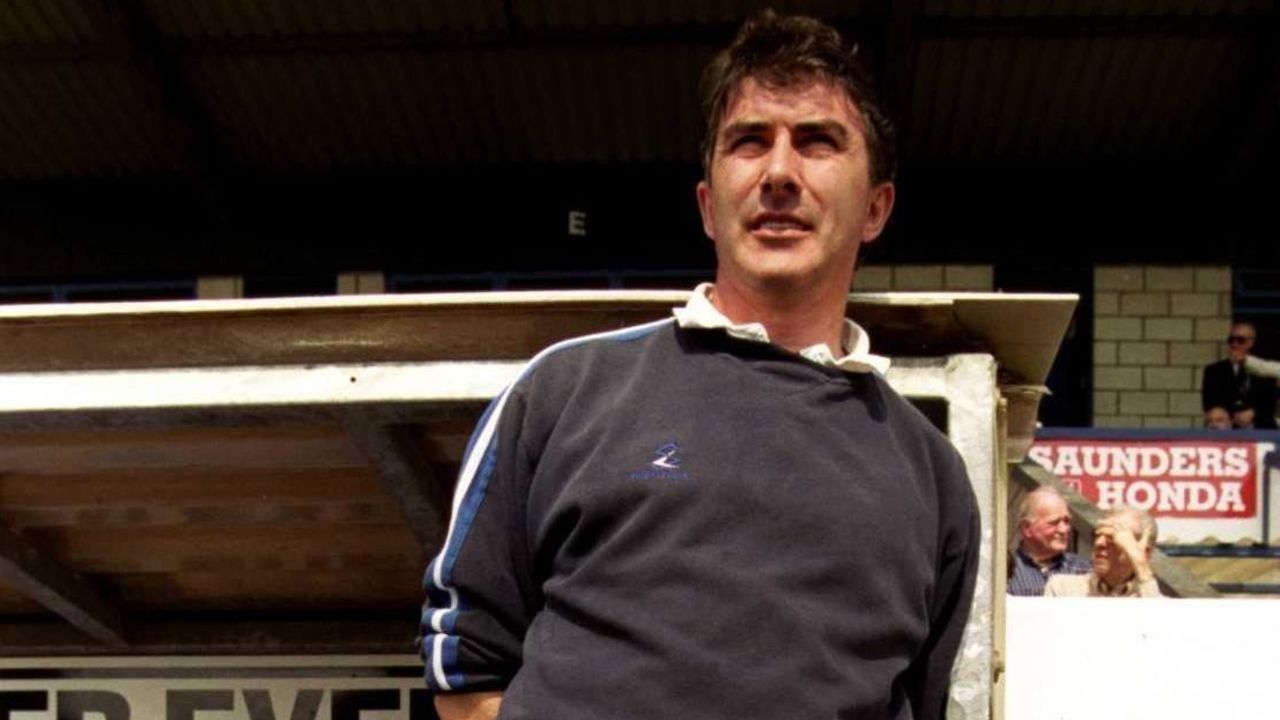
“You were a manager because you ran the team, but Terry wanted that title as a manager,” Atkins told theScore.
The job title didn’t matter to Atkins. Smith assured him he would be in control of the senior side, and Atkins subsequently oversaw a swift squad overhaul with the support of assistant manager Gary Shelton and well-connected physio Joe Hinnigan. Some players were discarded and seasoned professionals were brought in. The tactical approach became more pragmatic.
Smith still wanted to be involved, though. He preferred to sit in the dugout alongside his coaching staff for matches, and he liked to warm up the goalkeeper before kickoff – even though Smith was often wearing a suit.
“Browny would take the piss,” Moss said of his former club colleague Wayne Brown. “Browny would be in goal lashing balls so Terry would have to run after them. Rather than playing them back to (Smith’s) feet, he’d zip them in, so he’d miscontrol it. He’d be collecting balls out the stands from the fans.”
But Atkins’ approach worked. An embarrassing 7-1 home loss to Brighton & Hove Albion in late February sparked a run of five wins and four draws in 12 matches, a spell in which Chester conceded only eight goals. Their fine springtime results remarkably put the Blues on course to avoid relegation on the final day of the season, but Smith was apparently unimpressed with the team’s style of play.
“We were having less possession than the opposition but winning,” Atkins said. “He couldn’t believe that his team were playing so open and having a lot more touches and attacking, but getting walloped every week.”
“He loathed the fact that people were giving me credit, Joe and Shelts credit, and the players credit,” Atkins added.
In the end, the upturn in results wasn’t enough. Chester City were relegated, plummeting out of England’s professional leagues for the first time in 69 years.
A lot conspired against them. One of Chester’s players decided to join the Trinidad & Tobago squad instead of playing in his club’s decisive final-day fixture. On the eve of that same match, another player was imprisoned for his alleged involvement in a fight outside a nightclub.
Meanwhile, Ratcliffe, the former manager now in charge of Shrewsbury, was seeking £200,000 in compensation from Chester.
And it was Ratcliffe’s Shrewsbury who won on the final day, securing their Division Three status while Chester lost theirs.
“It was a great feeling for me in one way, but a sad feeling in another,” Ratcliffe reflected. “Chester meant a lot to me.”
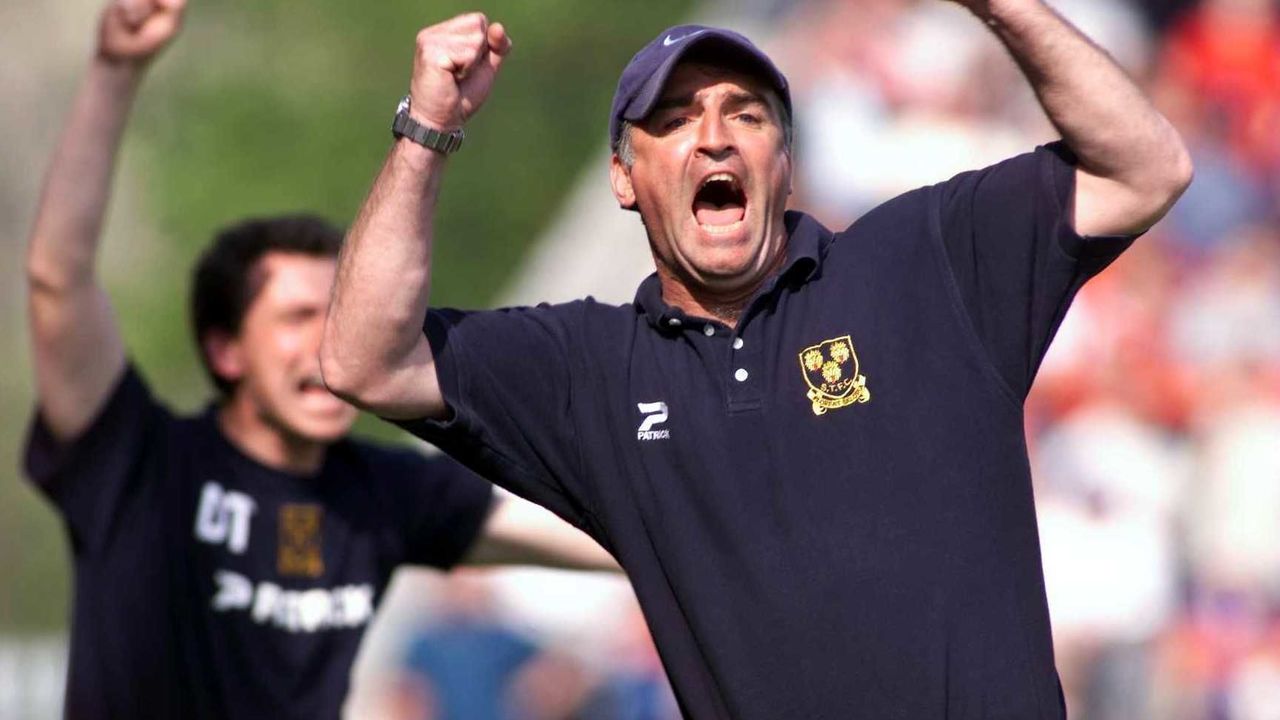
The crestfallen Chester players took exception when Smith tried to offer his post-match thoughts.
“In the dressing room after the game, he started to pipe up and a couple of the lads went for him,” Atkins said. “He ran out of the dressing room door and I’ve never seen him again.”
Atkins was already a popular figure with supporters and could’ve committed for another year with Chester, but felt he couldn’t match his ambitions when Smith handled the club’s operations. Graham Barrow, who was a fan favorite from his earlier stints as a player and a manager at Chester, was brought in to succeed Atkins, but Smith’s regime was already disintegrating.
Brooks is unsure what levels of abuse Smith dealt with from some fans. But the former commercial director told theScore that even he was in the firing line, as hosting press conferences and meetings with supporters had effectively made him “a secondary face of the organization.”
“I would get calls and people would be threatening my life and telling me to go home,” said Brooks, adding that a window was smashed at his house following the club’s relegation.
“I was looking over my shoulder. The threats and intimidation weighed heavily on me. I take things personally. I don’t have as thick a skin as some people … I didn’t know if (the threats) were going to be followed through or not.”
Brooks had an agreement with Smith that gave him an option to leave at the end of his first season, and he snatched at the opportunity. Smith himself was looking to take off when Chester were consigned to non-league football, with Brooks helping arrange meetings with potential buyers.
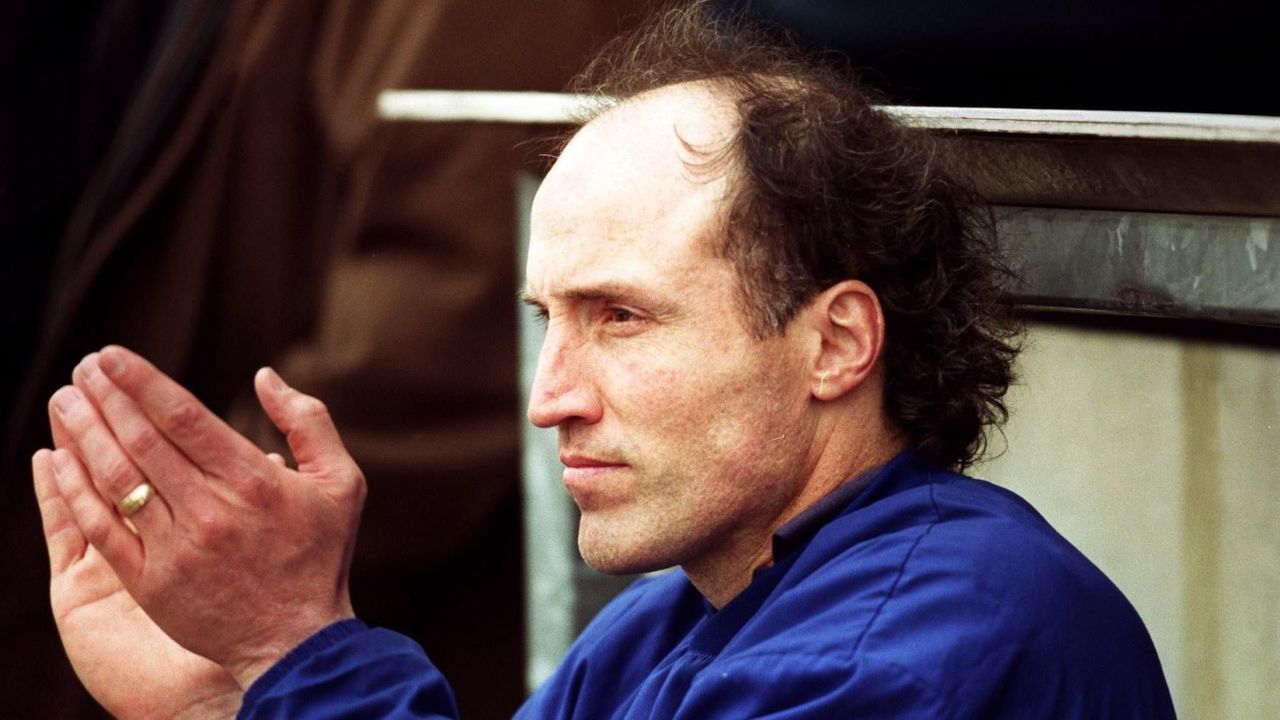
Smith eventually sold the club in October 2001 to Stephen Vaughan, a boxing promoter with links to infamous Liverpool gangsters. Vaughan was jailed for assaulting a police officer in 2013.
Chester City went bust in 2010, three years prior to Vaughan’s conviction, but a supporters’ group launched phoenix outfit Chester Football Club later that year. They now play in the sixth tier of England’s soccer ladder and protect themselves from shady investors by only inviting those who believe in the “ethos and the history of our club” to join the supporter-led ownership group.
Smith’s missteps, and those made by the owners that preceded and succeeded the American, can’t be made again.
“He didn’t realize what football meant to Chester City and the supporters. It was about him. Really, it was about him,” Atkins concluded. “He didn’t know football. He didn’t know anything about the club. He didn’t know anything whatsoever about players, how to win games of football.
“He didn’t know anything.”
Copyright © 2021 Score Media Ventures Inc. All rights reserved. Certain content reproduced under license.
You may like
Premier League
Breaking down thrilling EPL title race with 10 games left
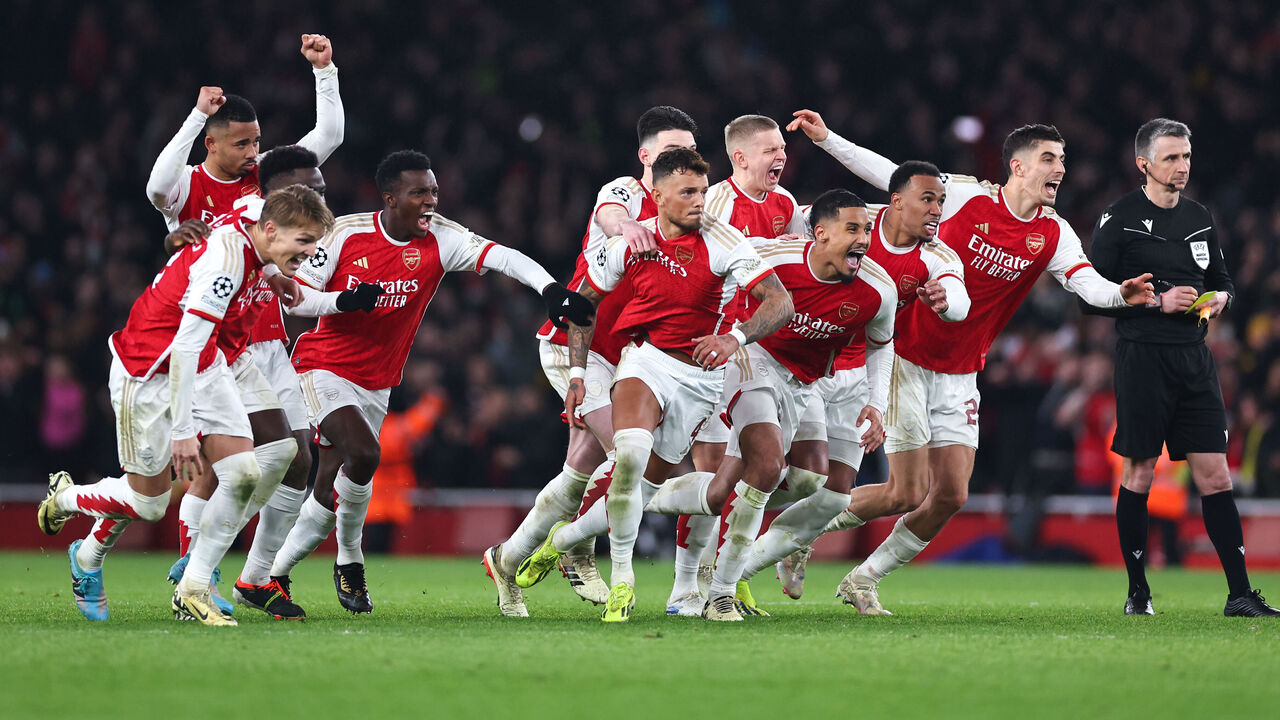
Find the biggest stories from across the soccer world by visiting our Top Soccer News section and subscribing to push notifications.
One of the most intoxicating title races in Premier League history is, mercifully, ready to resume.
The quirks of the calendar – an FA Cup weekend succeeded by an agonizing international window – means the titanic tussle between Arsenal, Liverpool, and Manchester City will have been on hiatus for a full three weeks before it gets back underway on Sunday.
But there are no more impending interruptions. With 10 matches remaining for each title contender, we’re barreling toward a resolution to the type of three-way battle that’s exceedingly rare in England’s top flight. There’s never been a season in the Premier League era where three teams went into the final day with a chance to hoist the trophy. This could be it. The last time it happened was the 1971-72 campaign, when Derby County won an incredible four-team fight, narrowly beating Leeds United and, ominously, Liverpool and Man City to the crown. We’re overdue for that kind of drama.
That three sides have converged this way at all is, frankly, remarkable.
These are the three best teams in the country by an enormous margin. They’re the only ones with an expected goal difference per game of plus-1.0 or greater this season. The next best mark, surprisingly, belongs to Mauricio Pochettino’s erratic Chelsea team at plus-0.36. So, yeah, it’s not close.
The three of them are also on a tear and show no signs of slowing down. Arsenal have won all eight of their league games in 2024, scoring 33 goals in the process; Liverpool have collected 22 of a possible 27 points in that time; reigning champions Manchester City have racked up 23 of 27 points. They’ve combined for just one loss since the calendar flipped – Liverpool’s 3-1 defeat against Arsenal in early February.
The only sides that look capable of halting their progress are each other, which makes this weekend’s clash between Manchester City and Arsenal at the Etihad all the more significant.
Each contender has a compelling reason for believing it’s “their” year.
Arsenal
Mikel Arteta’s men look far more assured and mature than last season when they set the pace for nearly the entire campaign, only to crumble down the stretch and relinquish their once sizeable advantage to Manchester City. Do-it-all superstar Declan Rice has been a transformative figure in midfield, while Kai Havertz, after an inauspicious start, is becoming an increasingly vital and consistent scoring threat. At least from the outside, there appears to be more self-belief within the Arsenal camp. Having learned from their experience in 2022-23, Arsenal won’t cede top spot so easily this time. It’ll need to be ripped from them.
Some may be inclined to dismiss their recent run because of their opponents. Yes, the Gunners have played some weak teams – Sheffield United! Burnley! Nottingham Forest! – but, for the most part, they aren’t just beating them; they’re blowing them away with a ruthlessness usually associated with title winners. For those still unconvinced, Sunday’s visit to the Etihad, where they were tossed aside like a rag doll in last season’s 4-1 loss, will be the ultimate litmus test to see if this team is ready to end the club’s 20-year title drought.
Liverpool
Jurgen Klopp’s persistent squad, already with the League Cup in tow, aims to send off their departing bench boss in style. Liverpool have been the most entertaining team of the trio this season. They create more chances than Arsenal and City and concede more opportunities. Darwin Nunez, the ultimate agent of chaos on a football pitch, is the perfect fit for a team with a habit of scoring late goals and delivering dramatic moments. Their title charge is built on more than just vibes, though.
Liverpool overwhelmed none other than City in their last league game before the international break but came away from the pulsating affair at Anfield with a 1-1 draw. City, usually self-confident and domineering in possession, simply held on against what Pep Guardiola dubbed a “tsunami” of pressure. There was obviously some added incentive at play, but Liverpool are built to go full speed regardless of the opposition. It’s in their nature under Klopp.
Manchester City
Despite not being at its vintage best this term, Guardiola’s accomplished crew remains the favorite in the eyes of many who, for good reason, simply refuse to pick against them. We’ve been conditioned to feel like City will inevitably be the last team standing because, well, they usually are. Five titles in the previous six seasons will have that effect on the collective psyche. However, Erling Haaland isn’t replicating his ferocious scoring pace from last season, and Kevin De Bruyne has been limited to six league starts. Also, outside of some electrifying Jeremy Doku performances, the summer signings haven’t exactly set the world alight. And yet, here they are, just one point off the top, showing the quiet confidence and tranquility that can only be obtained through winning experiences.
With Phil Foden leading the way and authoring arguably the best season of anyone in the league, City could become the first team in English history to win four consecutive top-flight titles.
Strength of schedule
On paper, Arsenal have the most difficult fixture list.
Their remaining opponents average 41.8 points this season, roughly corresponding to ninth place in the table. Put another way, it would be the equivalent of playing Wolves (41 points) or Brighton (42) each week. It doesn’t help that many of Arsenal’s toughest matches are away from home. Coincidentally, they have upcoming trips to Brighton and Wolves, along with north London rivals Tottenham and Manchester United, following this weekend’s potentially decisive tilt at the Etihad. It’s tough.
Manchester City’s task is slightly more forgiving, as their remaining opponents average 40.7 points or 10th place.
Liverpool appear to have the most favorable schedule of the trophy chasers, with their opponents averaging 38.4 points, a tally representing the haul of a team in the bottom half of the table. While that’s better than the alternative, it’s not quite so simple for the Reds. On the back of a potentially draining Europa League quarterfinal second leg against Atalanta in mid-April – more on that soon – Klopp’s men have three away games in seven days against Fulham, Everton, and West Ham. In addition to battling their local nemesis, who could still be scrapping for survival at that point, Liverpool will also face a rambunctious Goodison crowd that would love nothing more than to play a critical role in stopping their hated rivals from winning another league crown.
Aston Villa and Spurs, meanwhile, stand out as common foes for all three title hopefuls. Sitting fourth and fifth, respectively, and engaged in their own fight to secure a Champions League place, they could play the role of kingmakers this spring.
European commitments
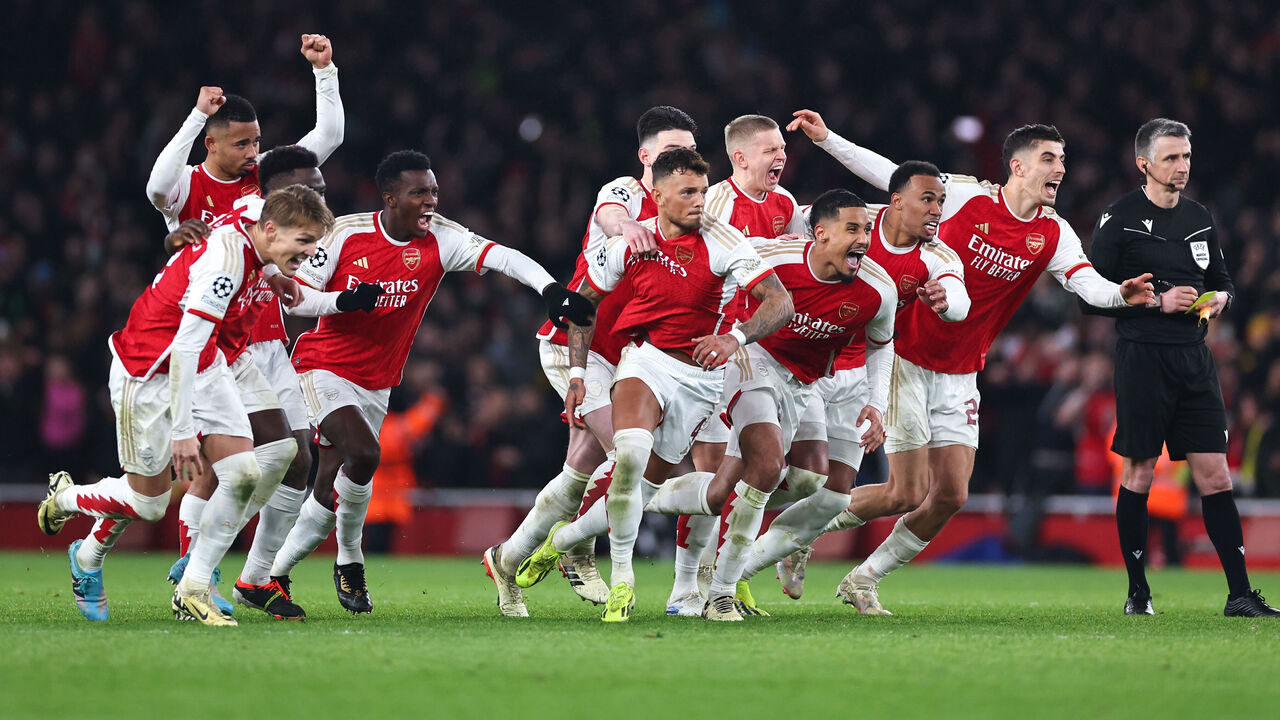
Balancing the mental and physical demands of domestic play with continental competition is a huge piece of this puzzle for all three teams. Midweek success can further galvanize a group, but taxing failures can cripple a team’s momentum at home.
Much like the domestic schedule, Liverpool seem to have an edge here. Arsenal and Manchester City will face European behemoths Bayern Munich and Real Madrid in a pair of mouthwatering Champions League quarterfinal ties beginning next month. However, Liverpool have a comparatively charitable Europa League encounter with Atalanta.
If they both advance, Arsenal and City will meet in the Champions League semifinals, an outcome that will surely be celebrated wildly on Merseyside.
How those games intermingle with the league schedule also matters. Liverpool play Crystal Palace and Fulham following their two matchups with the Italian outfit. After locking horns with Bayern, Arsenal have to contend with Aston Villa and Wolves. Manchester City, still active on three fronts as they seek a second consecutive treble, host lowly Luton after the first leg of their Real Madrid rematch and take on Chelsea in the FA Cup semifinals following the second leg.
Injury concerns
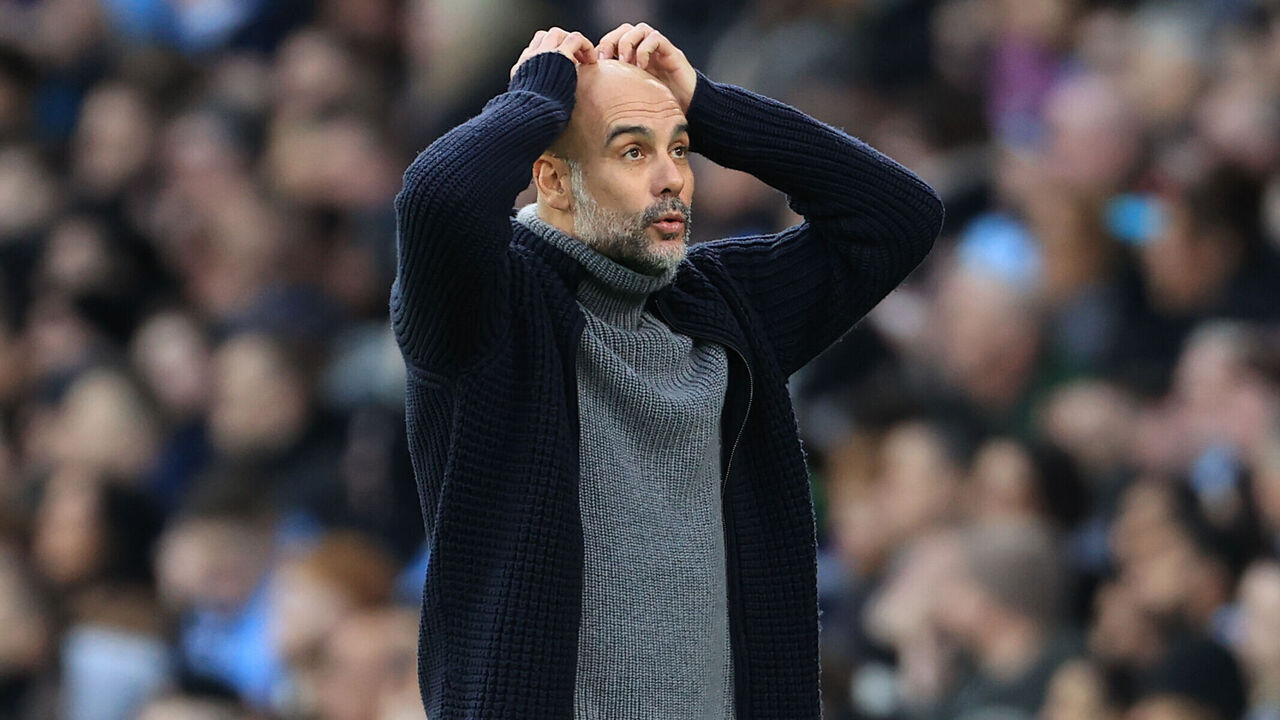
Liverpool have been plagued by injuries all season. Mohamed Salah, Trent Alexander-Arnold, Darwin Nunez, Diogo Jota, and Andy Robertson, among others, have missed varying amounts of time, though the bulk of that group is getting back to full fitness. Alisson Becker remains sidelined and might not return until mid-April. Defensive stalwart Virgil van Dijk is the only Liverpool player to garner over 2,000 league minutes this season, indicating how disruptive injuries have been for Klopp’s team. And yet, they persevere.
Five Manchester City players have cleared the 2,000-minute mark thus far, and a couple more are on the cusp. But the club was without De Bruyne for the entire first half of the season, while trips to the treatment room ravaged Jack Grealish’s year. City also got hit the hardest by the recent international break, with John Stones and Kyle Walker hurt on England duty and racing against time to recover for Sunday’s match versus Arsenal. Swiss defender Manuel Akanji is in the same boat, and Ederson’s return date from a thigh injury remains uncertain. Never shy about tweaking his lineup, Guardiola could be forced to tinker yet again.
Arsenal have been largely unscathed, with six players eclipsing 2,000 league minutes. William Saliba, whose absence last season played an outsize role in Arsenal’s capitulation, has been on the pitch for every second of league play in 2023-24. Gabriel Jesus has battled ailments all year, and Jurrien Timber suffered an ACL injury just 49 minutes into his Premier League debut in the season opener. But the Gunners will be hoping their relative good fortune on the injury front extends right through May, especially as it relates to Bukayo Saka, who pulled out of the England squad to nurse a minor muscular issue.
Prediction
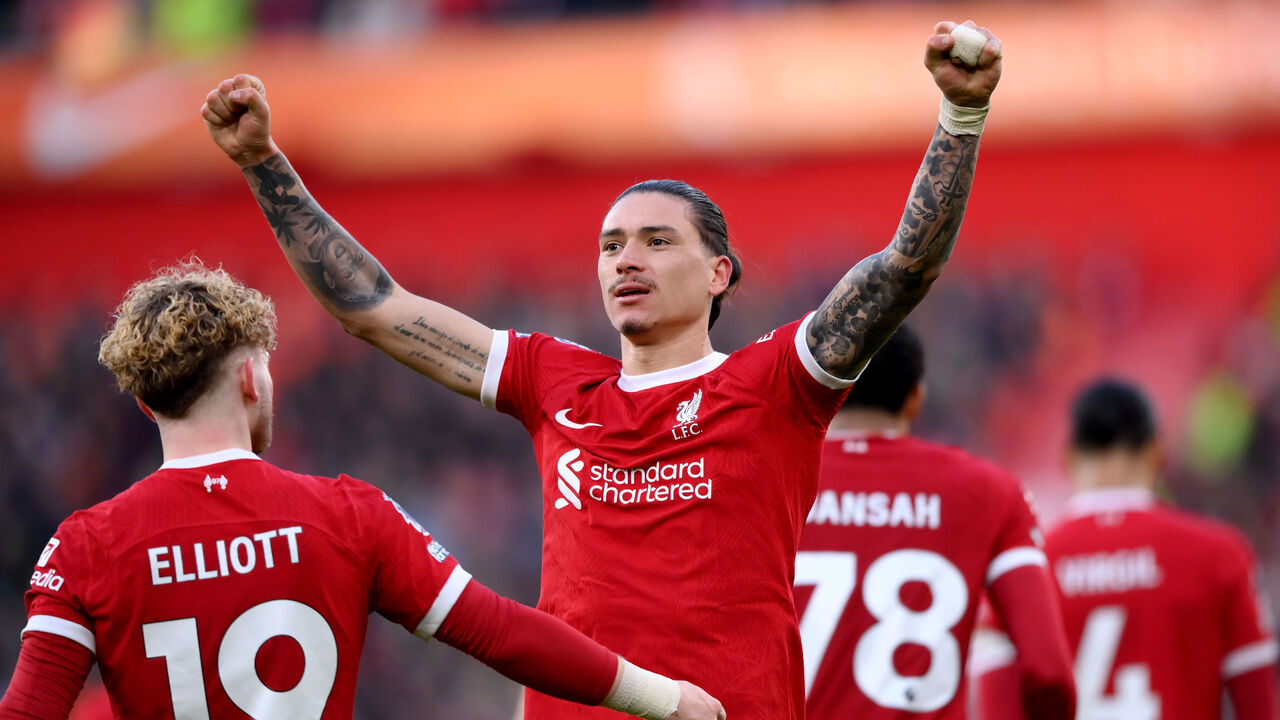
First, a disclaimer: Luck will play a pivotal role in determining which team is crowned on May 19. Injuries will continue to be a factor. There will almost certainly be contentious refereeing and VAR decisions that favor and oppose the title challengers. There will also be finishing variance, with players missing seemingly easy chances and converting more difficult opportunities.
Impossible to predict? No matter. We’re not going to let that stop us.
Considering their advantageous schedule, at home and in Europe, along with their improving squad health at just the right time and the inescapable feeling that this is a team of destiny determined to send their beloved manager out on a high, we’re going with Liverpool, who’ll collect 88 points to pip their rivals and again interrupt Manchester City’s run of domestic dominance.
Copyright © 2024 Score Media Ventures Inc. All rights reserved. Certain content reproduced under license.
Premier League
Euro 2024 playoffs: Miraculous Ukraine comeback, big result for Wales
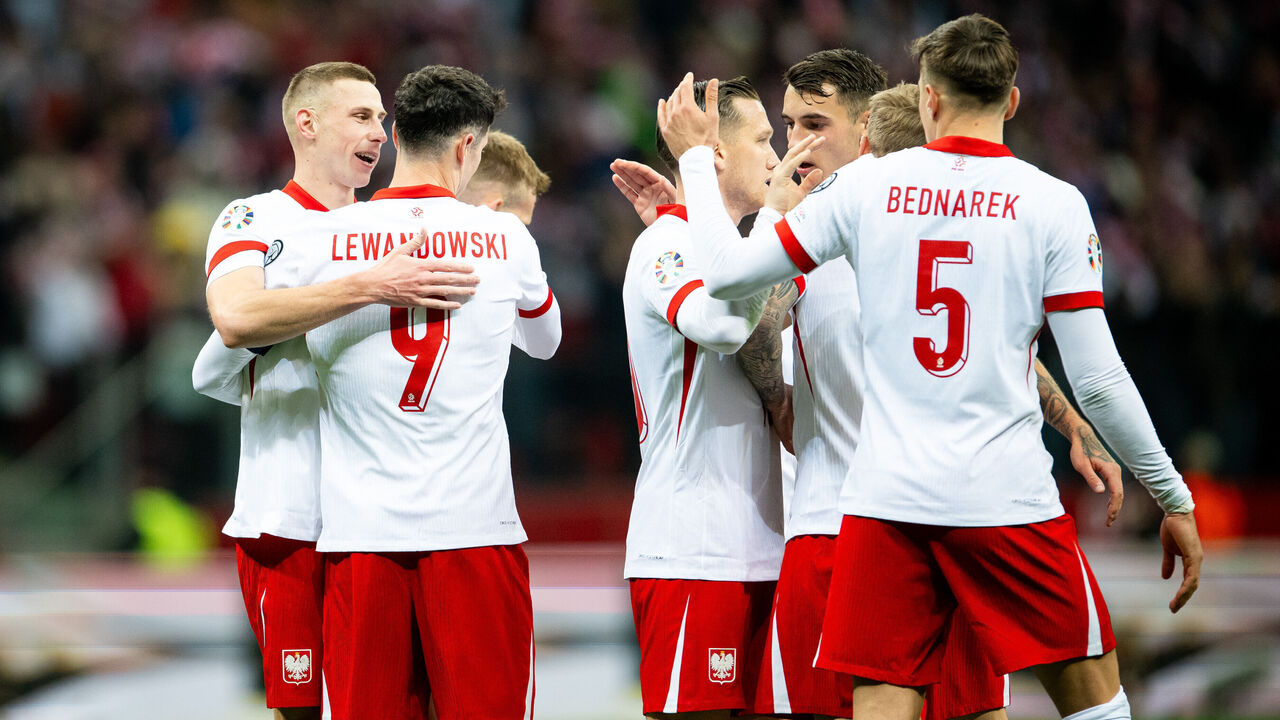
Find the biggest stories from across the soccer world by visiting our Top Soccer News section and subscribing to push notifications.
Wales, Greece, and Poland registered statement wins Thursday, joining three other teams in next Tuesday’s playoff finals for the three remaining places at Euro 2024.
Ukraine staged an incredible late comeback against Bosnia and Herzegovina in its semifinal to keep its Euro dream alive.
The highest-placed team in FIFA’s rankings that’s no longer in contention to reach the tournament in Germany is 60th-placed Finland.
Here’s how the playoff semifinals across Path A, B, and C played out.
Path A
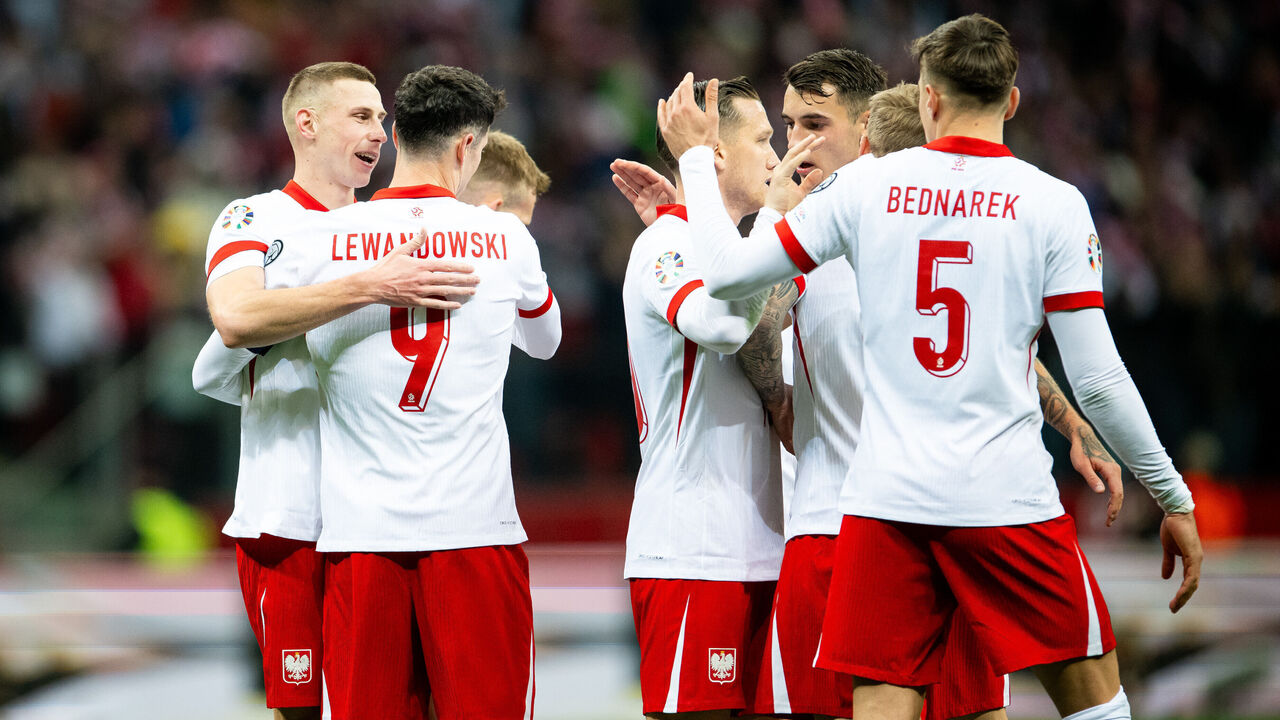
Poland 5-1 Estonia
Estonia barely stood a chance. Down to 10 men as early as the 27th minute, the northern Europeans could only muster a consolation goal in a 5-1 loss to Poland. The Polish achieved the rout without Robert Lewandowski getting on the scoresheet and remain unbeaten in 21 Euro qualifiers at home, a magnificent run dating back to September 2006. Poland is trying to make up for a poor qualifying campaign in which it finished third in Group E, four points behind the Czech Republic and Albania. The country hasn’t missed the Euros since 2004.
Wales 4-1 Finland
The Red Wall might descend on Germany this summer. Wales’ raucous supporters have legitimate hopes of traveling to another major tournament after the Dragons scorched Finland without the retired Gareth Bale and with Aaron Ramsey, 33, on the bench after more injury problems. Teemu Pukki gave the visiting team some hope just before halftime following well-taken finishes from David Brooks and Neco Williams. But Wales needed just 73 seconds of the second period to restore its two-goal cushion via Brennan Johnson’s tap-in. Daniel James took advantage of a defensive error before rounding the goalkeeper in the 86th minute to give the host a resounding victory.
Playoff final: Wales vs. Poland, Tuesday 3:45 p.m. ET
Path B
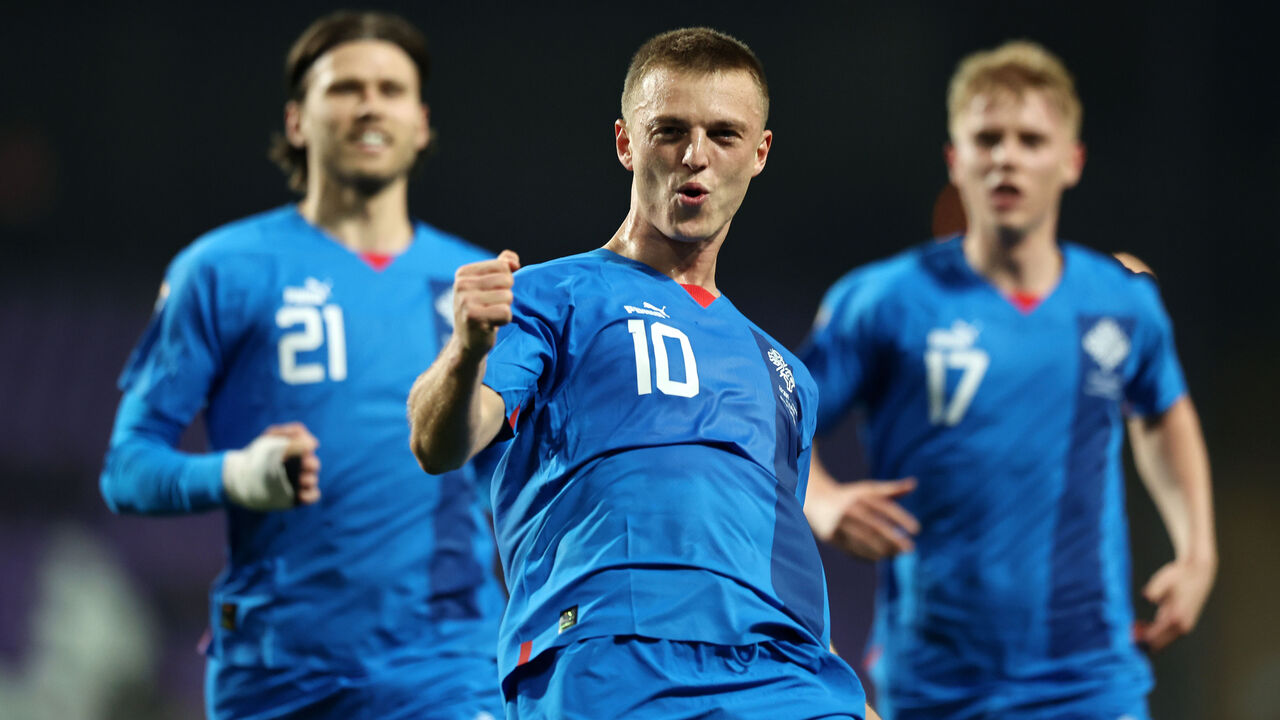
Israel 1-4 Iceland
Iceland’s Albert Gudmundsson stole the show with an emphatic hat-trick against Israel on Thursday. His stunning free-kick into the top right corner canceled out Eran Zahavi’s opening goal for Israel, and he created a nice cushion for his country with a pair of markers in the final 10 minutes. Just before that, Zahavi blew an incredible opportunity to equalize the match at 2-2, missing a penalty awarded for handball against Iceland’s Gudmundur Thorarinsson. A red card to Israel’s Haim Revivo didn’t help the trailing side. Iceland is now a game away from making only its second-ever appearance at the Euros following its quarterfinal run in 2016.
Bosnia and Herzegovina 1-2 Ukraine
Ukraine scored twice with just minutes remaining in regulation to snatch what seemed to be a sure victory from Bosnia and Herzegovina on Thursday. Bosnia controlled play for most of the match and took the lead in the 56th minute when Mykola Matviyenko turned in Amar Dedic’s shot into his own net. But a colossal defensive lapse cost the Bosnians a chance to make it a record four countries from the former Yugoslavia at Euro 2024. Roman Yaremchuk came off the bench to equalize in the 85th minute and teed up Artem Dovbyk’s sensational winning header three minutes later to turn the playoff semifinal on its head. Ukraine now faces Iceland with a third consecutive Euro appearance at stake.
Playoff final: Ukraine vs. Iceland, Tuesday 3:45 p.m. ET
Path C
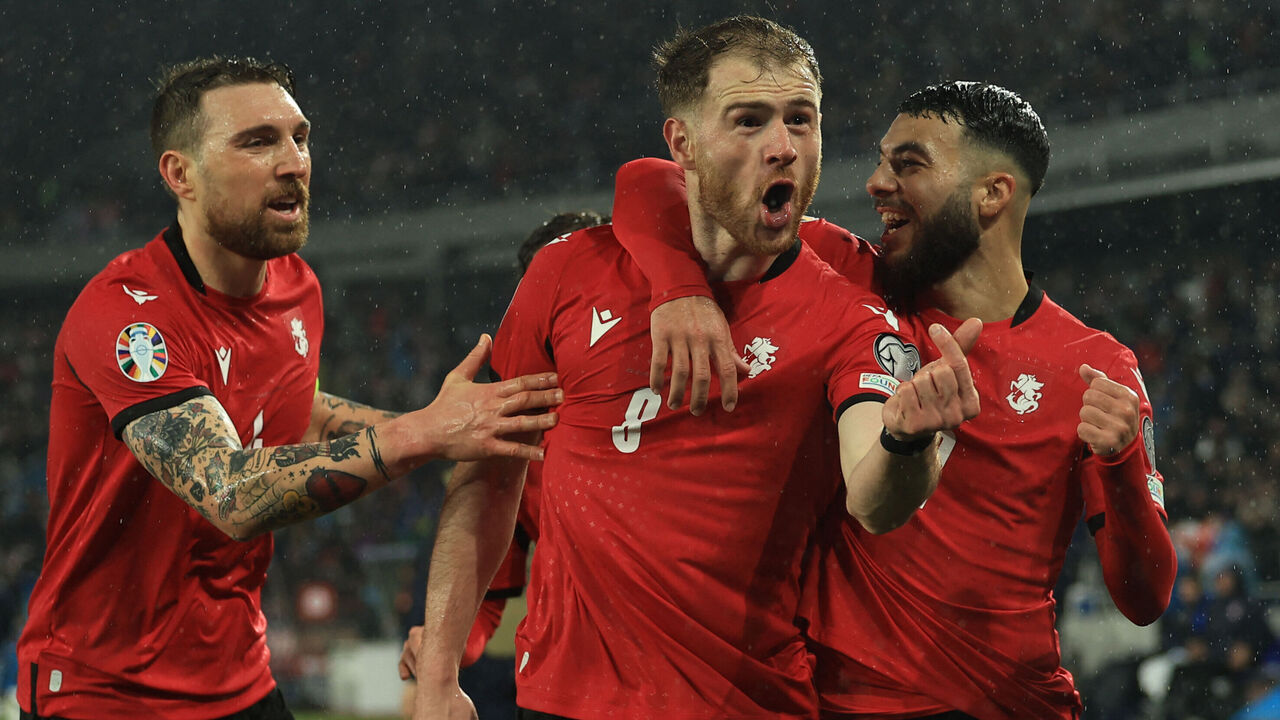
Georgia 2-0 Luxembourg
Two clever finishes from Budu Zivzivadze in Tbilisi assured Georgia of a place in Path C’s final – and all without the help of suspended talisman Khvicha Kvaratskhelia. But it wasn’t that simple for the host. Luxembourg thought it equalized during the second half, only for the goal to be eventually snatched away due to Maxime Chanot’s apparent foul 45 seconds earlier. Luxembourg’s Chanot was controversially sent off for denying a clear goal-scoring opportunity, and Zivzivadze effectively ended the match six minutes later with his second strike. Kvaratskhelia is available for the final.
Greece 5-0 Kazakhstan
Anastasios Bakasetas lashed home a penalty, Dimitrios Pelkas headed into the net’s roof, Fotis Ioannidis tapped in from close range, and Dimitrios Kourbelis added another header. And that was all before halftime. Kazakhstan’s impressive 2022-23 Nations League campaign and notable Euro 2024 qualifying wins over Denmark, Northern Ireland (twice), and Finland suddenly seemed ages ago, as Greece recorded its biggest halftime lead since October 1978 (5-0 against Finland). Aleksandr Marochkin’s embarrassing own goal in the 85th minute made Kazakhstan’s day even worse.
Playoff final: Georgia vs. Greece, Tuesday 1:00 p.m. ET
Copyright © 2024 Score Media Ventures Inc. All rights reserved. Certain content reproduced under license.
Premier League
Look: Nike unveils beautiful kit selection for Euro 2024, Copa America
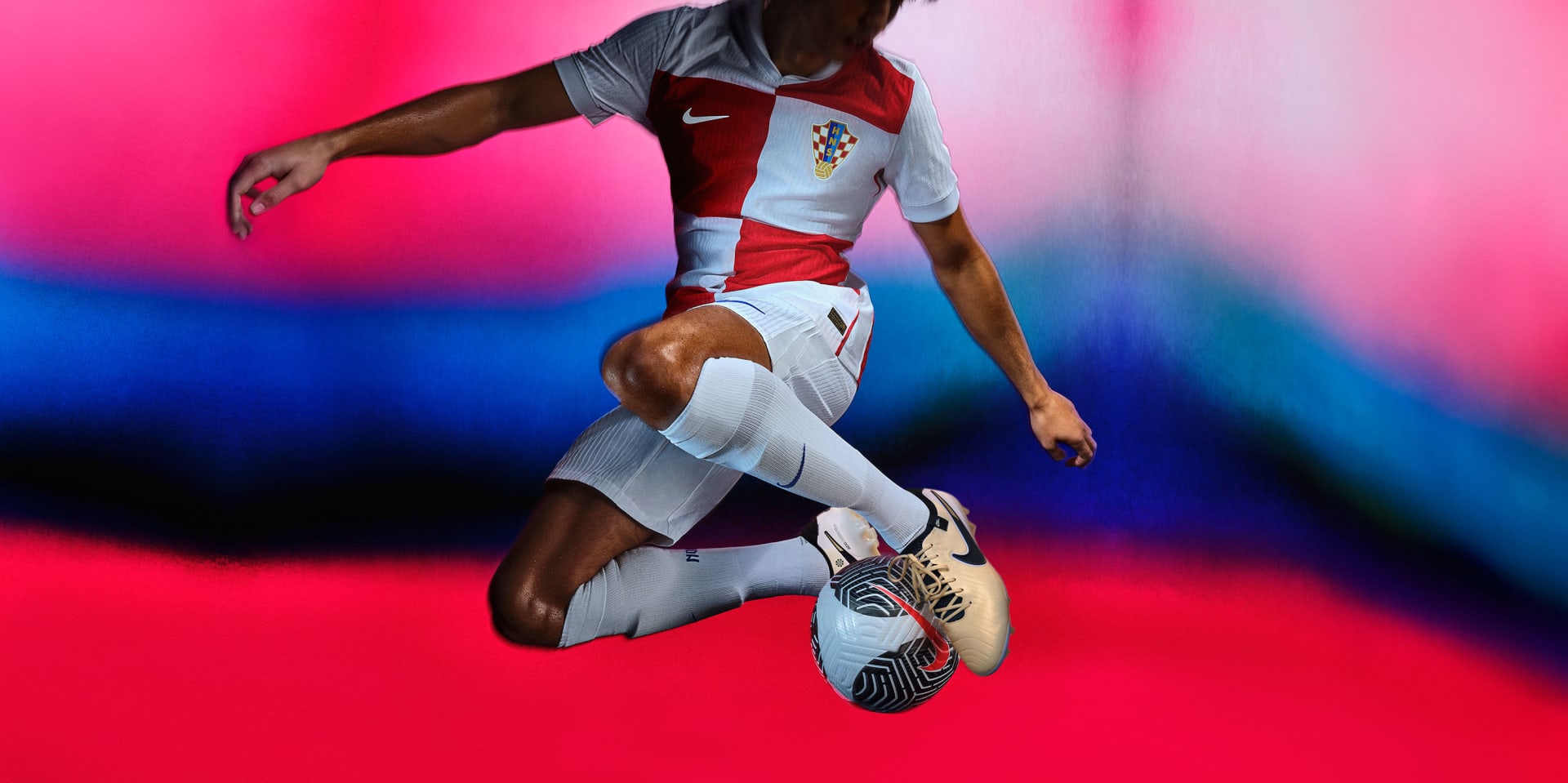
Find the biggest stories from across the soccer world by visiting our Top Soccer News section and subscribing to push notifications.
Nike released a stunning batch of threads ahead of Euro 2024 and Copa America on Monday.
Days after Adidas launched its lineup for the summer’s top two tournaments, Nike followed suit with an array of colorful designs.
The U.S. manufacturer also announced redesigns for Canada and Poland, even though they’ve yet to qualify for their respective tournaments. The Canucks face Trinidad and Tobago in a one-off Copa America qualifier on Saturday, while Poland must navigate a four-team playoff to reach Euro 2024.
(All images courtesy of Nike)
Euro 2024
Croatia
Home
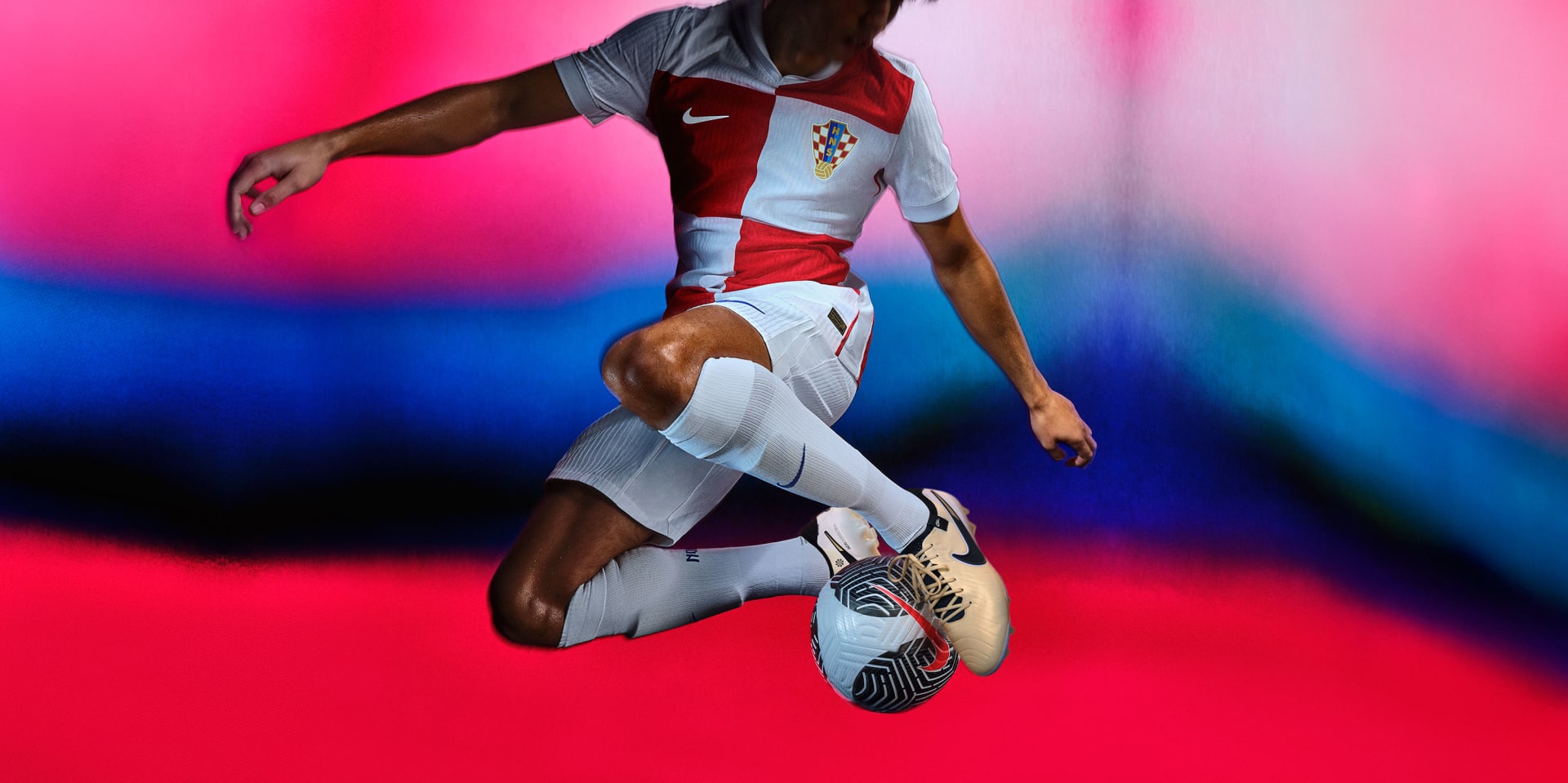
The square-shaped design that gives Croatia its unique look gets a slight upgrade. The home shirt features larger squares than ever before.
Away

Croatia’s away shirt plays on the national flag, with the traditional checkered pattern now on a slant.
England
Home

Influenced by England’s 1966 training gear, the home shirt has a classic feel with a rich blue collar and gorgeous trim along the cuffs.
Away
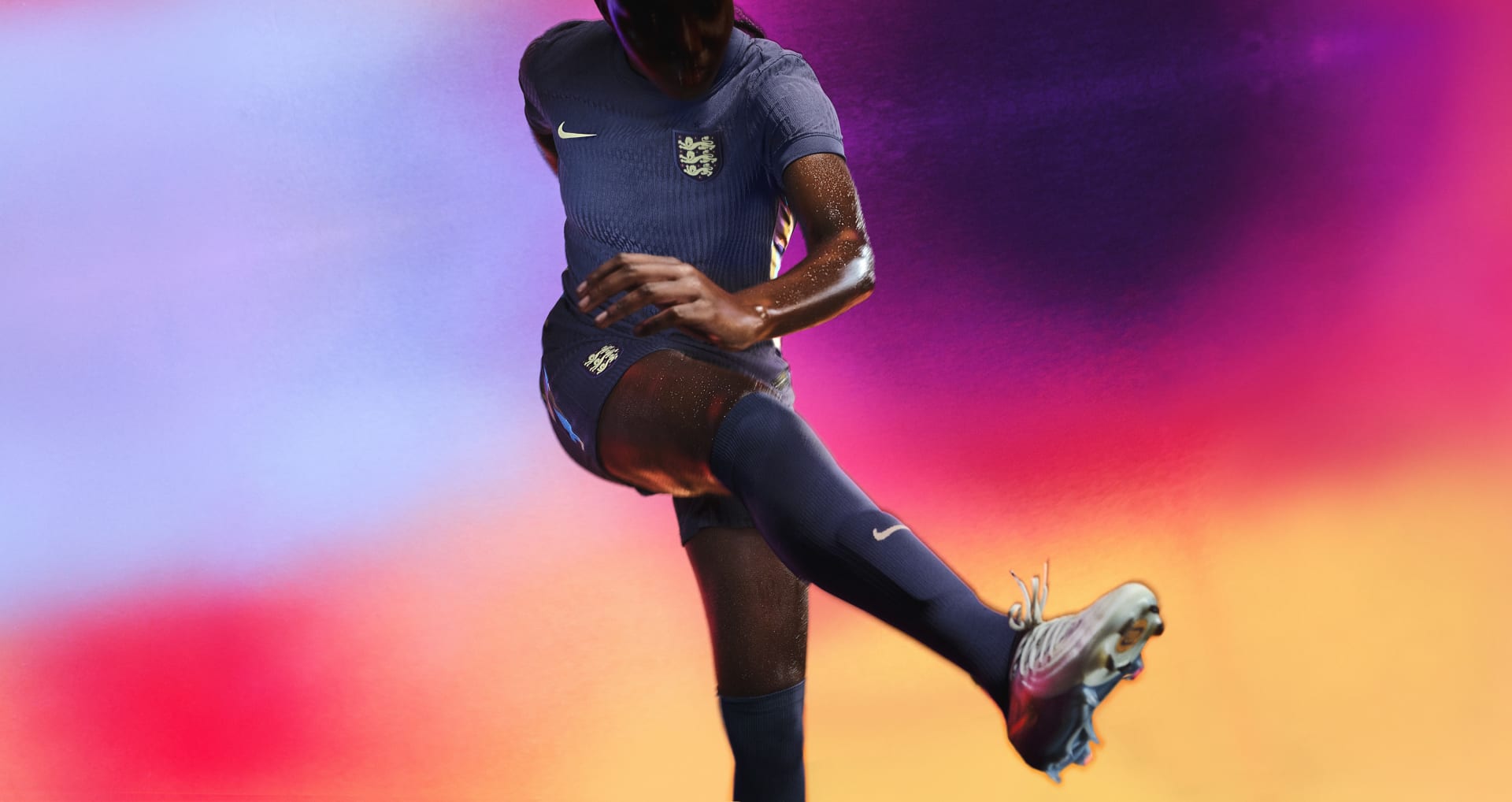
England embraces a deep purple hue for its away selection. The crest stands out with a contrasting off-white tint that makes the three lions pop.
France
Home

France’s home shirt may have the biggest crest of all of Nike’s offerings. The oversized rooster defines this shirt as much as the royal blue that’s made France’s kits a crowd-pleaser.
Away

The pinstripes mirror the colors of France’s national flag and span the width of the shirt in a simple, yet elegant design.
Netherlands
Home
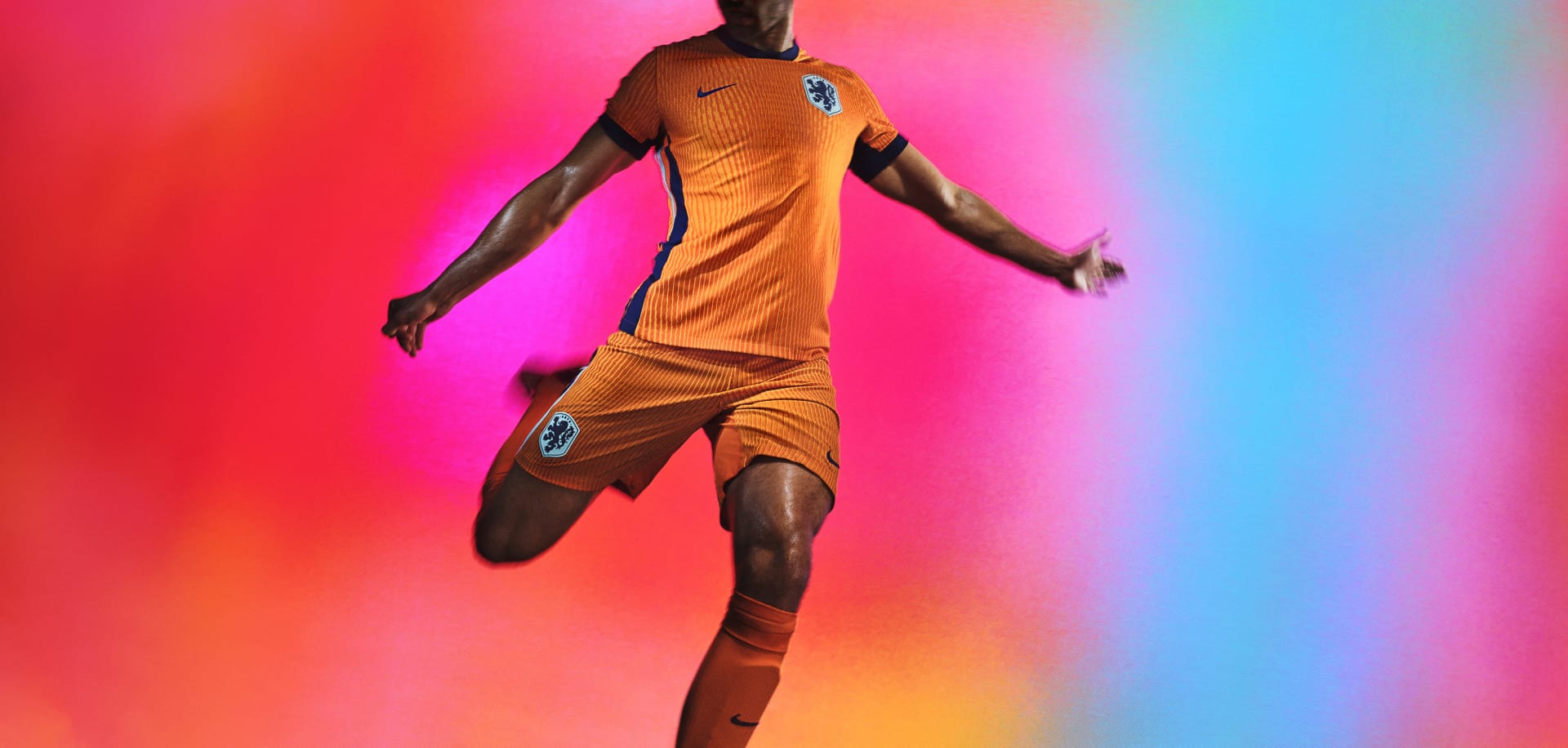
Nike could’ve offered anything orange here, and it would’ve been perfect. But the Netherlands has something bolder and better to wear. The zig-zag pattern adds edge.
Away

The orange collar and cuffs pop alongside the three shades of blue Nike has chosen to create the abstract design on this work of art.
Poland
Home

Poland dedicates premium real estate on the country’s home shirt to its imposing crest.
Away

Poland’s away shirt is a daring choice. The graphic treatment adds texture, giving it a rugged feel while separating from the red tones of years past.
Portugal
Home

With possibly the best home shirt in Nike’s collection, Portugal leans heavily into its traditional red-and-green motif with a polo collar and thick cuffs. The logo sits prominently as well. A smash hit.
Away

Here’s another winner. Portugal’s away strip has a stunning textile imprint that gives off a cool summer vibe.
Turkey
Home
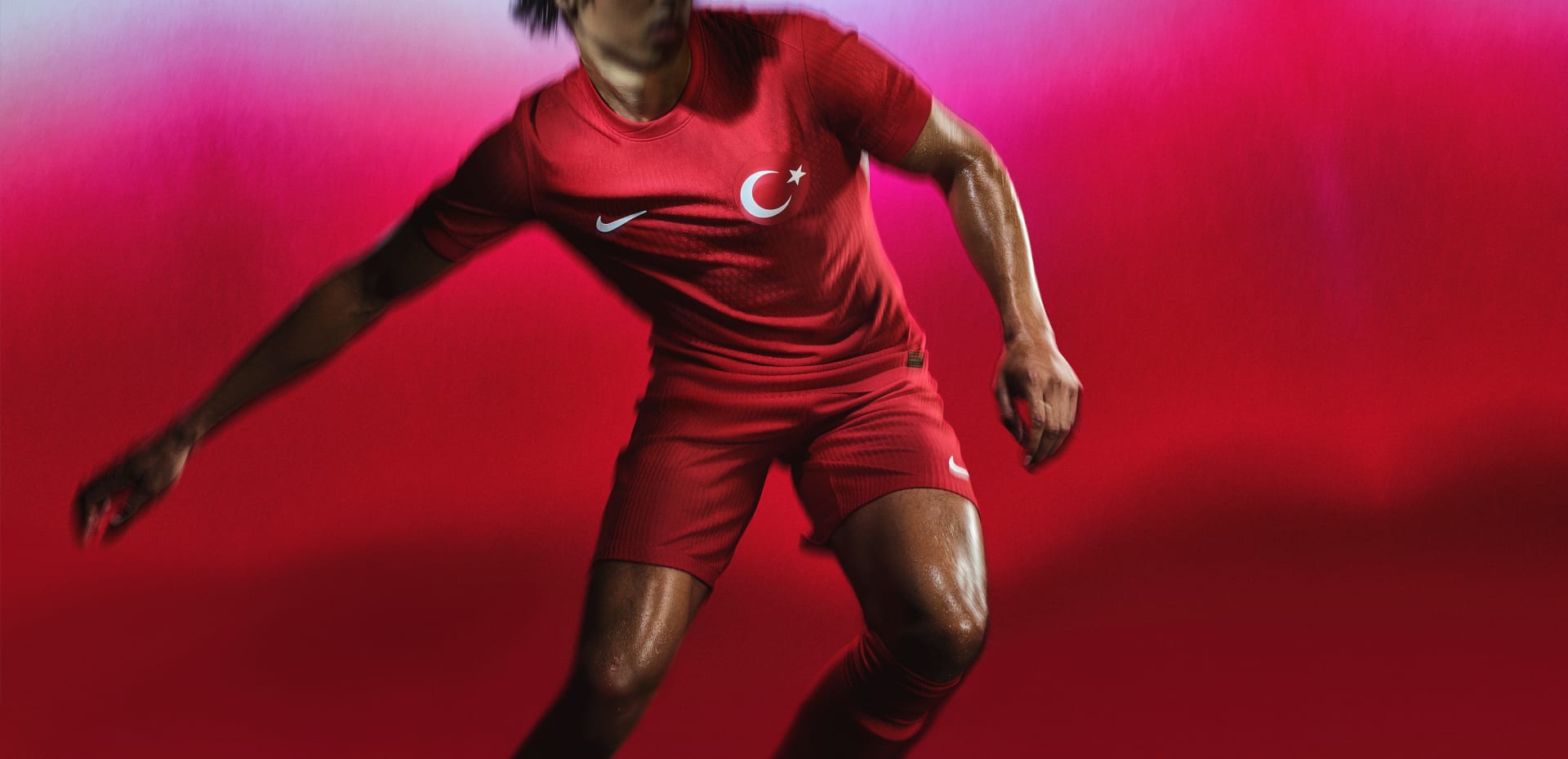
This is a menacing look. Turkey will look like a whirring red army with these imposing shirts.
Away

The classic red band returns to Turkey’s away uniform. Like the others, it features an oversized crest in the middle of the shirt.
Copa America
Brazil
Home

Nike goes big with Brazil’s crest and adds an intricate design to the same yellow hue the Selecao have used for decades.
Away

Brazil’s secondary strip feels like the beach. A horizontal wavy pattern covering the entire shirt mimics the country’s picturesque coastline.
Canada
Home

The only blemish in Nike’s lineup. Why is there a circle around the swoosh? And why are the shoulders so much darker than the body? None of it makes sense.
Away

The 13 pinstripes are supposed to represent the 10 provinces and three territories that make up Canada. Unfortunately, the rest of the shirt looks incomplete.
United States
Home

The United States men’s national team gets a classic home shirt with patriotic detailing along the color and sleeves.
Away

The gradient works perfectly with the red shorts the U.S. will wear at the Copa America.
Copyright © 2024 Score Media Ventures Inc. All rights reserved. Certain content reproduced under license.

Breaking down thrilling EPL title race with 10 games left

Euro 2024 playoffs: Miraculous Ukraine comeback, big result for Wales

Managerial merry-go-round: Predicting hires for marquee jobs

The Champions League's best XI so far

35 stars who will define the summer transfer window

Ajax show Juventus that winning requires more than individual quality
Trending
-
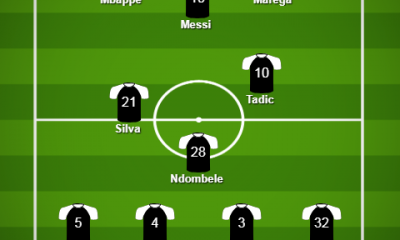
 Champions League5 years ago
Champions League5 years agoThe Champions League's best XI so far
-
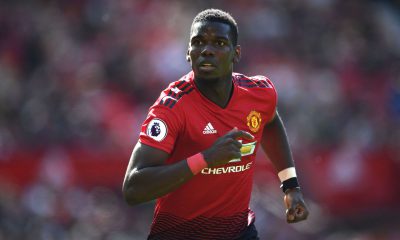
 Serie A5 years ago
Serie A5 years ago35 stars who will define the summer transfer window
-
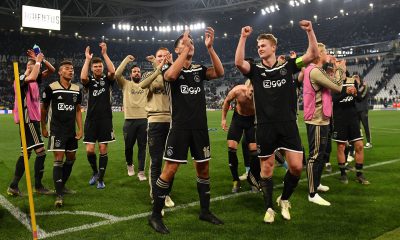
 Serie A5 years ago
Serie A5 years agoAjax show Juventus that winning requires more than individual quality
-
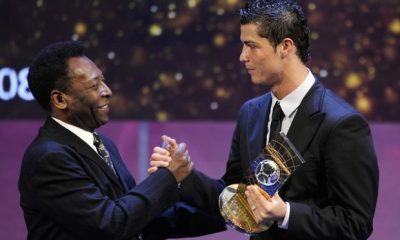
 Uncategorized3 years ago
Uncategorized3 years agoIFFHS publishes the list of top scorers in football history – Romario first, Ronaldo third
-
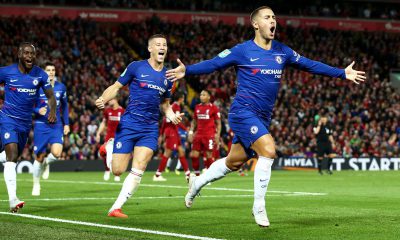
 Premier League5 years ago
Premier League5 years agoTransfer grades: Assessing Hazard’s move to Real Madrid
-
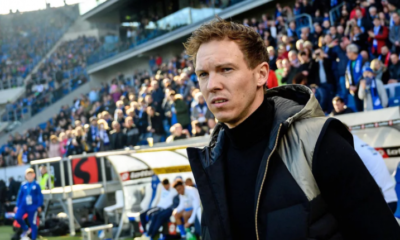
 Sports5 years ago
Sports5 years agoReady Newest Trainer in Bundesliga History, retire SOLSKYER.
-
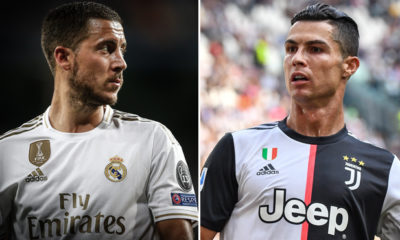
 Sports5 years ago
Sports5 years agoWenger: Hazard can’t replace Ronaldo.
-

 Sports5 years ago
Sports5 years agoMastur Talent Returns: In Milan I was a chance to make money, penalized me for growing up as a footballer.

